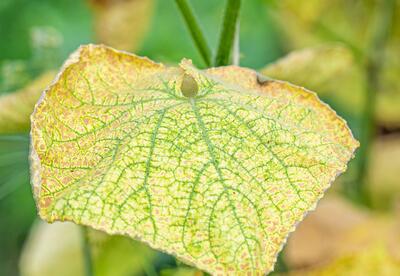
Figure 1: Pair the new test with Agdia's AmpliFire® Pro portable isothermal fluorometer (coming soon!)
Agdia, Inc. is happy to announce the commercial launch of a field-deployable rapid molecular test kit on their AmplifyRP® XRT platform for onsite detection of Begomovirus spp.
For growers interested in sending plant samples to Agdia, this product will also be used by their Testing Services diagnostic laboratory, where customers receive expert guidance on crop screening and rapid turnaround time of test results.
The Begomovirus genus (Geminiviridae family) consists of over 450 species of plant-pathogenic viruses that infect a very wide variety of crops. Begomoviruses are primarily spread from one plant to another by whiteflies (Bemisia tabaci and others). Examples of prominent species in the Begomovirus genus and their impact on cultivated crops are shown below:
African cassava mosaic virus (ACMV) causes severe disease in cassava, one of the most important food crops in Africa. In addition to whitefly transmission, ACMV is also spread from one field to another by vegetative propagation. African cassava mosaic virus causes severe mosaic symptoms (Figure 2), leaf chlorosis, stunting and reduced tuber size.
%20-%20small%20-%20Dr.%20Parthasarathy%20Seethapathy,%20Amrita%20School%20of%20Agricultural%20Sciences,%20Bugwood.org.jpg?mask=2)
Figure 2. Cassava leaf infected with African cassava mosaic virus (ACMV, Begomovirus). Courtesy of Dr. Parthasarathy Seethapathy, Amrita School of Agricultural Sciences, Bugwood.org
Tomato leaf curl New Delhi virus (ToLCNDV) is known to infect over 40 plant species, including tomato, pepper, zucchini, melon and other cucurbit crops. Symptoms include leaf curl, crinkling, mottling, stunting and severe losses in fruit yield.
Tomato yellow leaf curl virus (TYLCV) is known as one of the most economically impactful diseases in tomatoes. Symptoms in tomatoes include leaf curl, chlorosis (leaf yellowing), stunting and reduced fruit yield.
Tomato yellow mosaic virus (ToYMV) causes economic losses in tomatoes. Symptoms include chlorosis (leaf yellowing), reduced fruit yield and overall stunting.
Bean golden yellow mosaic virus (BGYMV) is one of the most impactful diseases in the common bean. Foliar symptoms include chlorosis (yellowing), leaf curl and leaf deformation (Figure 3).
%20-%20Field%20-%20small%20-%20Howard%20F.%20Schwartz,%20Colorado%20State%20University,%20Bugwood.org.jpg?mask=2)
Figure 3. Common bean infected with Bean golden mosaic virus (BGMV, Begomovirus). Courtesy of Howard F. Schwartz, Colorado State University, Bugwood.org
Chilli leaf curl virus (ChiLCV) primarily causes severe economic losses in peppers but also infects tomatoes. Symptoms include leaf curl and bunching of leaves, smaller deformed fruit and lower fruit yield.
Pepper leaf curl virus (PepLCV) is known for causing significant economic losses in pepper. A primary symptom is improper flower formation that results in lower pollen yield and ultimately, very low fruit yield. Other symptoms include chlorosis (leaf yellowing), stunting and leaf curl.
Extensive validation studies for this new test were conducted to demonstrate fitness for purpose. This assay was designed to reliably detect both bipartite and monopartite Begomovirus spp. No cross reactivity was observed with other pathogens tested during product validation. Diagnostic specificity of this test is 100% (99 out of 99 true negatives detected). The new assay successfully detected 169 out of 173 diagnostic samples, resulting in a diagnostic sensitivity of 97.7%.
This test has been validated for use in many crops, including cucurbits (squash, watermelon, cucumber, etc.), tomatoes, peppers and a multitude of ornamental species.
About AmplifyRP®
Agdia’s new AmplifyRP® XRT assay for the detection of Begomovirus spp. is based on recombinase polymerase amplification (RPA). This technology promotes the rapid amplification and detection of nucleic acid targets, DNA or RNA, while maintaining a single operating temperature of 39–42 °C. AmplifyRP® products achieve sensitivity and specificity comparable to PCR, while having clear advantages over the lab-based technology. AmplifyRP® products do not require a nucleic acid purification step; crude sample extracts are prepared using a simple extraction buffer and tested directly. When paired with Agdia’s AmpliFire® Pro isothermal fluorometer (Figure 1, coming soon!), the AmplifyRP® system is a user-friendly tool that can be implemented in the field or the lab by personnel with limited experience in molecular diagnostics. Total assay time is less than 30 minutes when used with the AmpliFire® as a real-time assay.
About Agdia
A leading provider of diagnostic solutions for agriculture, Agdia, Inc. has been serving plant breeders, propagators, growers, universities, and private testing laboratories since 1981. The company offers a comprehensive portfolio of validated, easy-to-use diagnostics for identifying plant pathogens, hormones, and transgenic traits. In addition, Agdia operates an ISO accredited, in-house, testing services laboratory. Agdia’s quality management system is ISO 9001:2015 certified and their Testing Services Laboratory is ISO/IEC 17025:2017 accredited by ANAB. Visit the company’s website at www.agdia.com, e-mail info@agdia.com, phone 1-574-264-2615 (toll-free 800-622-4342) or fax 1-574-264-2153.
AmplifyRP® and AmpliFire® are registered trademarks of Agdia, Inc.





